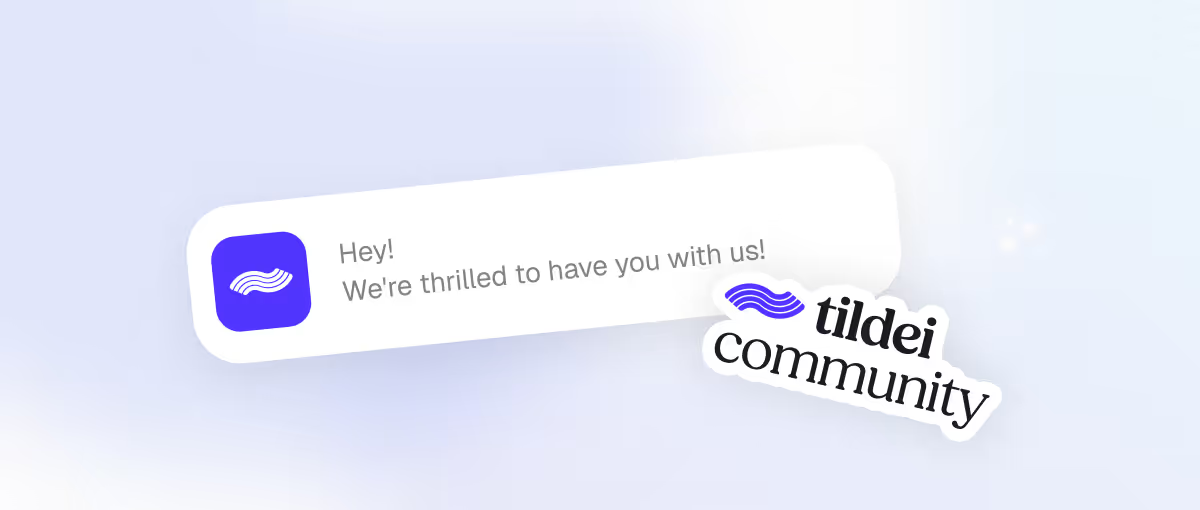Why we are starting with WhatsApp
If the future of marketing is conversational, then WhatsApp is the channel to bring it to life.

If the future of marketing is conversational, then we believe that WhatsApp is the channel to bring those conversations to life. There are countless reasons why brands should already be using WhatsApp to talk with their customers - the most obvious being size. A whopping 2 billion monthly active users makes it by far the most popular chat app in the world.
But as we center the conversation between brands and their customers, we think there are even more compelling reasons. Our favorite are the interactive elements native to the channel. WhatsApp has intuitive, interactive features like quick replies, lists, voice memos, images, PDFs and videos that actively encourage conversations in a way thats unique to the channel.
And it doesn’t end there. Let’s get into more reasons why your business should be tapping into WhatsApp now.
Why Businesses Should Use WhatsApp
It’s where your customers are
WhatsApp is the most popular messaging app worldwide. Even more, the US is the fastest growing WhatsApp market. Customers are already interacting with brands on the platform - 1 billion users connect with business accounts on WhatsApp every week. So your customers are there, and they’re already interacting with businesses. But why are they there?
To understand WhatsApp’s rise in popularity, it’s important to know the highlights and features:
- Free for users - Easy enough. While SMS can have high costs in some countries, WhatsApp is free for the user no matter the region.
- Works across devices - This is key. It allows for easy communication between different devices i.e. sending messages between iPhone and Android devices (example: no more receiving pixelated, shrunken images when sending pictures between Samsung and iPhone devices).
- Uses internet connection to send messages - Instead of sending messages and calls over a cellular network, this feature allows users to communicate between countries and over long distances without any fees.
- Encrypted - For the security-minded, users can rest assured that messages and phone calls are protected from access by third parties unlike SMS, email, or phone calls.
- Interactivity - Beyond just sending text based messages back and forth, WhatsApp supports sending photos and videos, sending voice messages, reacting to messages with emojis, replying to messages in line, and sharing daily statuses with images and video.
Early adopters of the app were users from countries outside of the US, where SMS and cellular plans are expensive, allowing them to communicate without the high cost. Within the US, international travelers and those with friends and family in other countries were first movers because of the ease of global communication. Since then, more and more Americans have become regular users of the multi-platform communication app for the superior group chat features and end-to-end encryption.
An early adopter advantage: less marketing noise to break through
WhatsApp has been around since 2009, but only in the past few years has it really taken off, especially in the US. On top of that, WhatsApp didn’t launch a business part of the app until 2018. It’s a less saturated conversation channel when compared to the busy email inbox or the noisy SMS space, making it a channel for you to stand out, to easily connect with your customers, and to get the benefits of a first mover.
As of late 2021, tens of thousands of businesses globally were using WhatsApp Business. That number may sound like a lot initially, but then consider what it includes. It’s both small and big businesses around the world who may or may not be using it actively and, further, who may or may not be using it well.
This is where you and your brand come in. Not only is it a chance to stand out and avoid the fight for customer attention, but also it’s a chance to show how WhatsApp marketing can be done well. You can set the tone and the bar for the conversations your customers want to receive, and we’re here to help you do that.
Imagine a world where you’re able to have a dialogue with a customer or prospect in the moment they need it the most. They’re looking for more product information or want to learn more about your brand before purchasing, and you’re able to answer their questions.
More meaningful conversations and experiences
As communicators ourselves, when we want to have back-and-forth, in-the-moment conversations to gather information, email is often the last place we turn. More often than not, we’re not even turning to SMS. More and more, we’re using messaging apps, pinging a colleague or chatting a friend, to get insight or start a conversation.
This dynamic, interactive conversation plus the audio and visual component, is possible within WhatsApp. Comparing and contrasting to email or SMS is difficult because with WhatsApp you have a whole new set of capabilities and richness not accessible in the previous channels. Think of it as the richness that’s in email, combined with the status updates that are possible in social, and supported by the interactive messaging capability only available in chat app messaging.
Better and more actionable metrics
Marketing, and more specifically messaging, is measured by the metrics it directly produces. The old standby channels like email and SMS have provided a good foundation of must have data points like delivered, opened, or clicked. But what if there was a channel that had more built-in metrics, with more meaning, that were easy to access? This is one of the top reasons we’re so excited about marketing in WhatsApp.
As a personal user of WhatsApp communicating with my friends and family, I love nothing more than the added metrics like delivered and read built right into the application. I can quickly and easily glance at a message window to check for the memorable two blue check marks to determine if my message was received and read. Whether it’s for individual or business users, sharing important metrics is core to the app and to the channel.
The more robust metrics, plus the segmentation based on those metrics, will make customer journeys deeper and more valuable. We’re excited for foundational use cases like these, built around WhatsApp metrics:
- Sending a reminder if a message remains unread: A customer starts a product review, but doesn’t respond to the final question, and the message goes unread. A reminder message can be sent the following day to encourage them to complete the review.
- Sharing suggestions based on previously shared preferences: A customer sends a message asking for help planning a trip. You can ask them questions - do you prefer city or beach? - and then respond in real time with suggestions!
Why Businesses Should Not Use WhatsApp
That’s a great question! For some businesses maybe the time isn’t right to add a new channel. For others, maybe it’s not for their audience.
As WhatsApp continues to release new features, to grow business-based messaging, and to focus on growing the US market, the window of those who shouldn’t use it will get smaller and smaller. Some may say it’s for a younger audience, but many Boomer and Silent Generation parents and grandparents use it to communicate with their families. Some may say it’s only for a certain industry, but it’s becoming less about customer support and more about customer conversations.
WhatsApp is no longer a new channel. It’s becoming well known in American households at a time when it’s already the default communication for many communities around the world. For businesses, it’s not just another fun channel to test - it will be a critical part to marketing strategy in meeting customers in the places they prefer.


.jpg)
